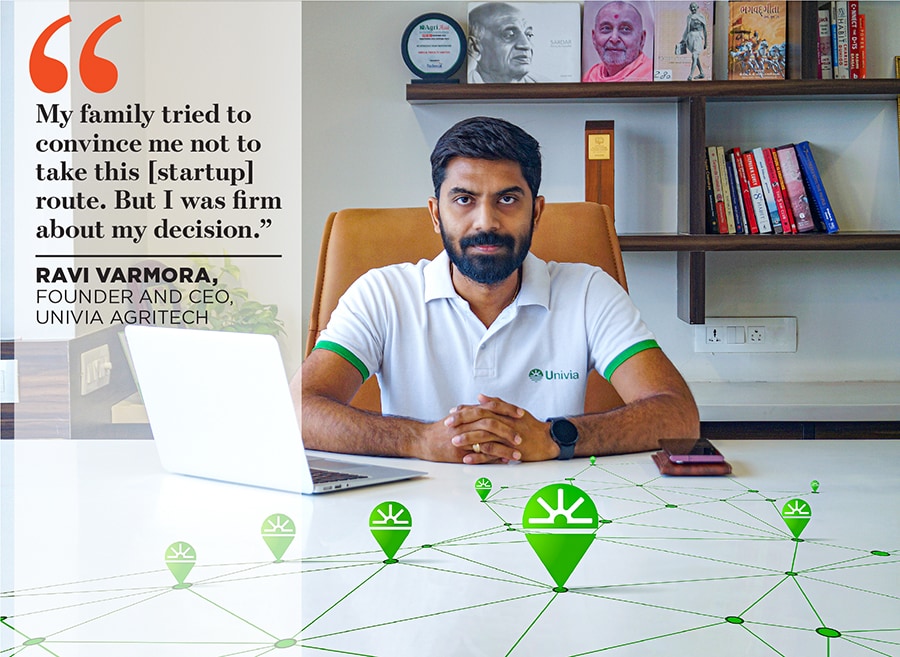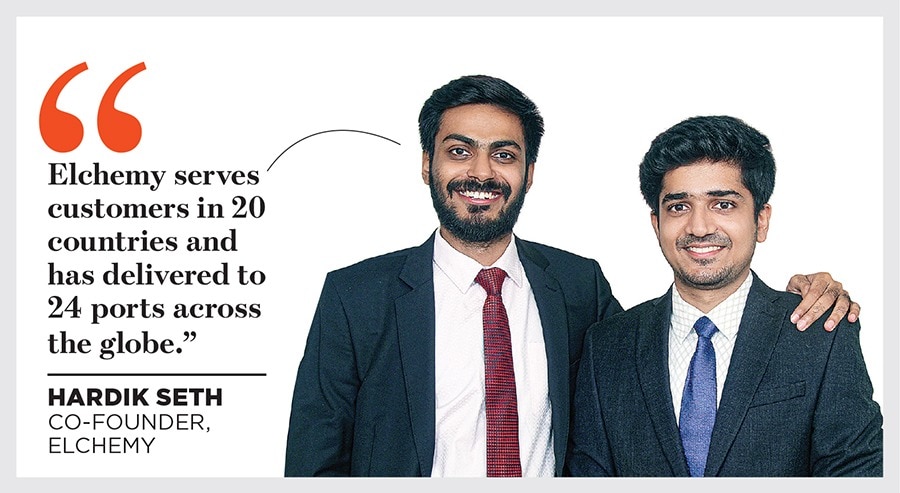
Ahmedabad: Family business destination to startup hub
Family-run businesses are putting Ahmedabad on the map. Despite being late in the race, with the help of government initiatives, ventures are fast turning the city into an emerging startup hub
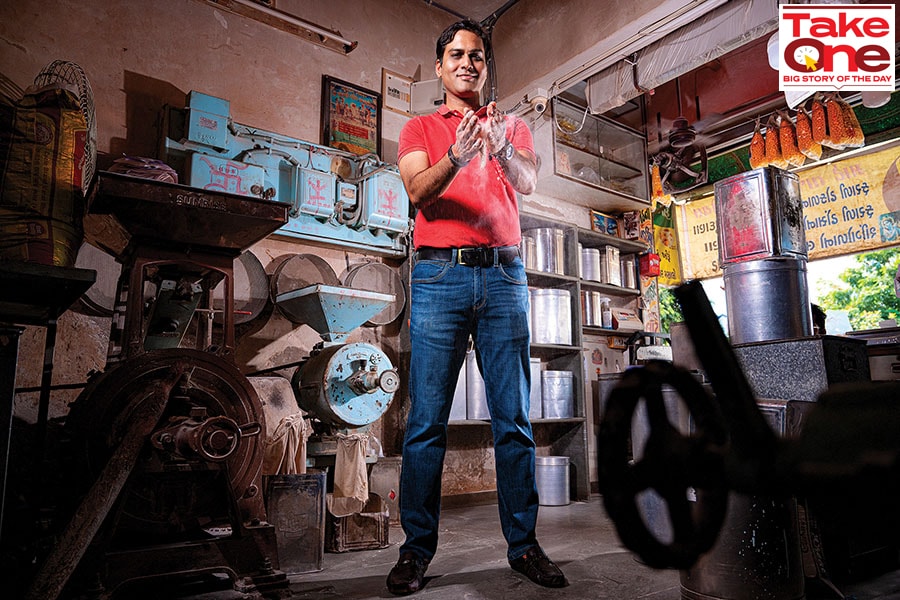 Harshvardhan Lunia, Founder and CEO, Lendingkart
Image: Mexy Xavier
Harshvardhan Lunia, Founder and CEO, Lendingkart
Image: Mexy Xavier
When you think about Gujarat, usually family-owned businesses come to mind. But this perception is gradually changing as the largest city in the state is seeing a brewing startup culture. On August 29, a report from Deloitte-Nasscom put a spotlight on Ahmedabad, calling it one of the emerging technology hubs. The city also ranked highly in terms of ease of doing business. The land of entrepreneurs, as the report pointed out, has a high density of startups due to better infrastructure, government support and a talent ecosystem. About 40 percent of the startups have burgeoned in sectors including BFSI, pharmaceuticals, agritech and the internet.
LendingKart is one such fintech startup that started operations from Ahmedabad in 2014. Harshvardhan Lunia always wanted to start his own business. After quitting his job in London, he came back to Ahmedabad and started a debt advisory platform, which didn’t scale the way he had hoped. Lunia gave entrepreneurship another shot, this time looking at lending in the MSME space, with LendingKart. “Mumbai is the financial capital of the country and Bengaluru is the tech hub. I did consider setting up operations in either of these two metros, but my family was based in Ahmedabad, so it was more of a cost-saving strategy,” he laughs. In hindsight, it was a great decision with the kind of infrastructural growth and government incentives the city has seen over time.
Finding the right talent was a potential issue for most startups, but not anymore. “Finding tech talent was a bit challenging, so we set up an office in Bengaluru in 2015 for our tech-related work,” explains Lunia. For most other roles, LendingKart’s founder and CEO reckons, “quite a few people were willing to relocate to Ahmedabad, given that it offers a better quality of life and lower cost of living.” From revenues of ₹2-3 crore in 2014-15, the company has clocked a turnover of ₹1,200 crore in FY23, claims Lunia.
First-generation entrepreneurs face a unique set of challenges. Building everything from the ground up, they often lack access to financial resources and guidance that their peers from business families might enjoy. For instance, Sandeep Patel had dabbled in many other businesses before he found success with his waste management company Nepra, also known as Let’s Recycle. The 15-year-old company is a market and leveraging tech solutions firm, has managed to build an end-to-end supply chain, from collecting waste to recycling it. It also uses artificial intelligence-based sorting solutions for waste segregation.
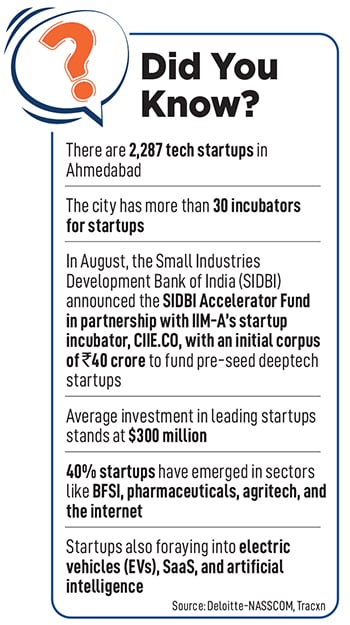 The startup processes about 800 metric tonnes of waste on a daily basis and has also expanded its footprint to Maharashtra, Madhya Pradesh and other regions in Gujarat. In the initial years, recalls Patel, “People didn’t understand our business. They used to keep us waiting outside their office for hours. Some of them even asked us to go away because they didn’t respect what we did.” Today, Let’s Recycle serves clients, including Tata, Reliance, Amul and Adani. Patel is now looking to expand further into B2C. The company has raised $38.6 million from investors like Aavishkaar Capital and Circulate Capital. “From a startup, we are more at a growth stage now, where the mindset has become risk mitigation. So while we have defined our processes and business model, we continue to innovate on our business,” says Patel.
The startup processes about 800 metric tonnes of waste on a daily basis and has also expanded its footprint to Maharashtra, Madhya Pradesh and other regions in Gujarat. In the initial years, recalls Patel, “People didn’t understand our business. They used to keep us waiting outside their office for hours. Some of them even asked us to go away because they didn’t respect what we did.” Today, Let’s Recycle serves clients, including Tata, Reliance, Amul and Adani. Patel is now looking to expand further into B2C. The company has raised $38.6 million from investors like Aavishkaar Capital and Circulate Capital. “From a startup, we are more at a growth stage now, where the mindset has become risk mitigation. So while we have defined our processes and business model, we continue to innovate on our business,” says Patel.






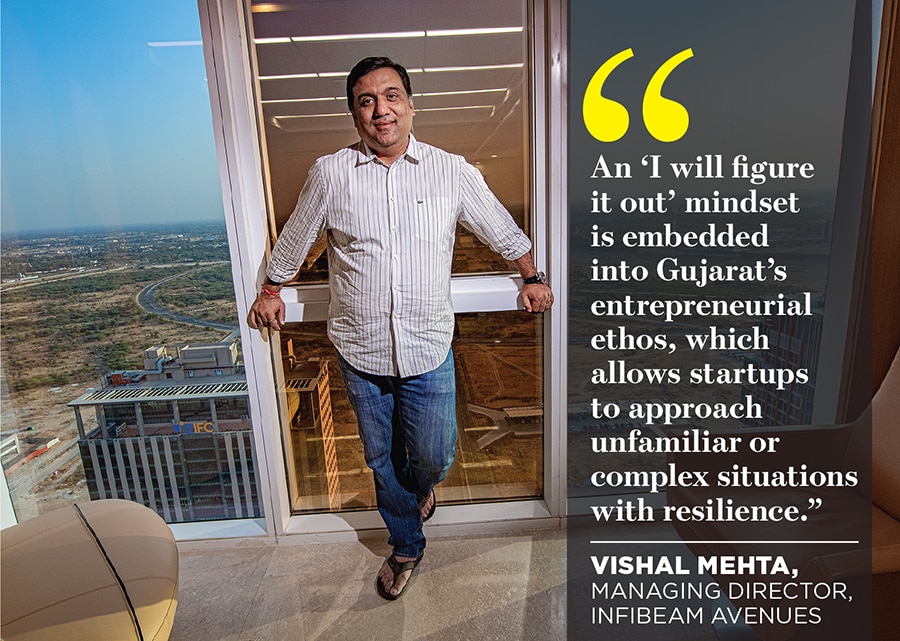
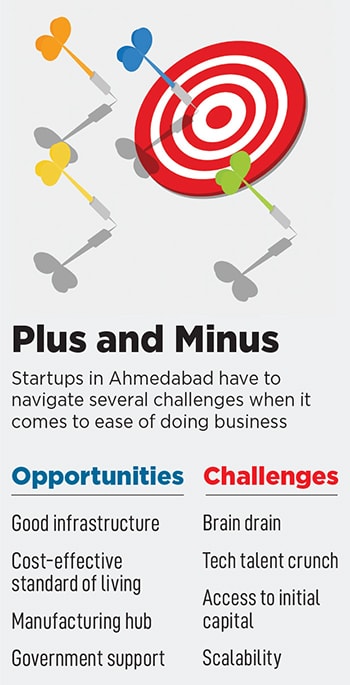 Another early startup from Ahmedabad is Infibeam Avenues. Founded in 2007, the company started as an ecommerce platform and later grew into a fintech company. It is also looking to enter the AI space now, and recently announced that it will be establishing “India’s first AI hub headquartered at Gujarat International Finance Tec-City (GIFT City) with an initial focus on fintech and financial sector, building AI solutions for fraud detection, authentication and risk identification (FAR) to nurture AI ecosystem and develop solutions for the domestic and global market”, says Vishal Mehta, managing director, Infibeam Avenues.
Another early startup from Ahmedabad is Infibeam Avenues. Founded in 2007, the company started as an ecommerce platform and later grew into a fintech company. It is also looking to enter the AI space now, and recently announced that it will be establishing “India’s first AI hub headquartered at Gujarat International Finance Tec-City (GIFT City) with an initial focus on fintech and financial sector, building AI solutions for fraud detection, authentication and risk identification (FAR) to nurture AI ecosystem and develop solutions for the domestic and global market”, says Vishal Mehta, managing director, Infibeam Avenues.